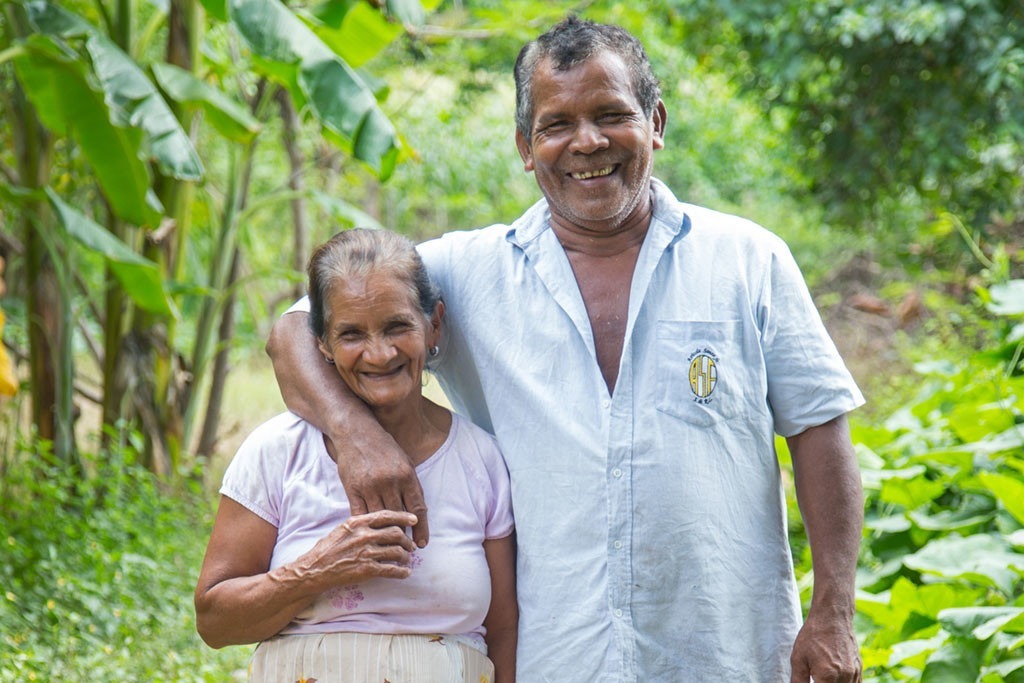CHOLUTECA, Honduras – Juan Escobar has been fortunate with his cornfield. This year the corn has quickly grown well above his head, dropping tiny flowers in his hair as he walks through the rows.
But the rainy season is coming to an end, and the toughest part of the year for farmers in Honduras’ Dry Corridor – when the heavy rains stop and months of drought settle in – is still to come.
Escobar and his wife Juana Mercado Pineda, who raised 10 daughters in their remote community of Siete de Mayo, have no reliable means of storing the large amount of water that falls during the rainy season for use throughout the rest of the year. The unpredictability puts both his fields and his family at risk.
“How are we going to collect water? We don’t have water, because here water is scarce,” Escobar says, seated in a plastic chair on the edge of his field. “From January on, we have very little to drink, little potable water. Life, it’s very expensive. We must buy water from where there are wells in order to bathe.”
But next dry season should be different. With help from a new project in the region, Escobar built a water harvesting system that will allow him to save rainwater and irrigate his field.
A project known as ACS-PROSASUR, an acronym that roughly stands for “Dry Corridor Alliance – Promoting Food Security in the South” in Spanish – is providing Escobar with the tools to harvest water and the knowledge to sustain the system through rainy and dry seasons to come.
The system will funnel rainwater from his roof through pipes and filters into a large geomembrane bag. Escobar will then be able to hand pump the water into a raised tank, and from there water will trickle down into his fields and provide drip irrigation.
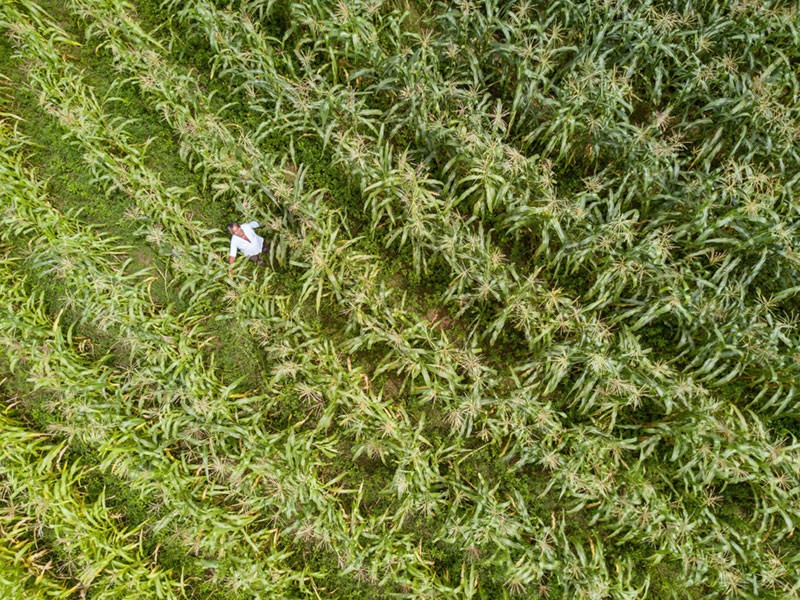
For Escobar, the idea of irrigating his field was novel, as was the composting system the project helped him build out of plastic trash cans that allow him to fertilize his crops. But as a lifelong farmer who knows the difficulties of the soil and weather, he was prepared to give these new practices a chance.
“I knew what they were going to do, but until now we’ve never done it here," dit-il, sweeping his hand toward the home where he’s lived for more than 40 années. “God willing, it will all work out well. In the harvesting of corn, we always get it right. But now with the water harvesting, we will no longer have losses because we’ll have enough water. That’s what we want.”
Building resiliency for the most remote
Escobar and his family are not alone in their struggle for water. Only about 25 percent of families in the region have access to water at home – a problem that goes hand-in-hand with dire food insecurity.
These are challenges that underlie every initiative of ACS-PROSASUR, which is working in 12 municipalities in the southern departments of Choluteca and El Paraíso to improve livelihoods and build resiliency for 6,000 poor and extreme poor families.
The project is implemented by Associés créatifs internationaux in partnership with the Honduras Strategic Investment Office, Investir-H. It is one piece of the larger Alliance des corridors secs and receives funding from the World Bank through the Programme mondial pour l'agriculture et la sécurité alimentaire.
The project will help families develop business and food security plans and provide farming tools like biofuel systems, complete small household projects such as installing clean cook stoves and laying concrete over dirt floors, and offer trainings and technical assistance. The project seeks to refine farming practices, diversify crops and connect smallholder farmers to markets to both raise incomes and improve health.
Plus que 3,000 families will receive water harvesting systems like the one at Escobar’s home, for a total of nearly 1,000 hectares d'irrigation.
Rony Alvarez, a technician who has been working closely with Escobar, says the project is reaching families that have often been overlooked.
“Assistance sometimes has stayed within a privileged group and hasn’t reached those who really need it. I’m someone who thinks that we’re in a country where a few people have a lot and a lot of people have little," dit-il. “That’s why I like this project, because we’re coming to help the people who are most in need.”
The Dry Corridor region of Honduras struggles with compounding challenges like food and water scarcity, pauvreté, illiteracy and high levels of migration. Alvarez says he thinks putting change in motion at the household level can start to turn things around for families like Escobar’s.
“We believe that by establishing land parcels that can be planted all year round, we can generate jobs and help people stock up for household consumption, as well as to sell their excess crops and generate incomes, so that young people don’t have to migrate and can stay in the region," dit-il.
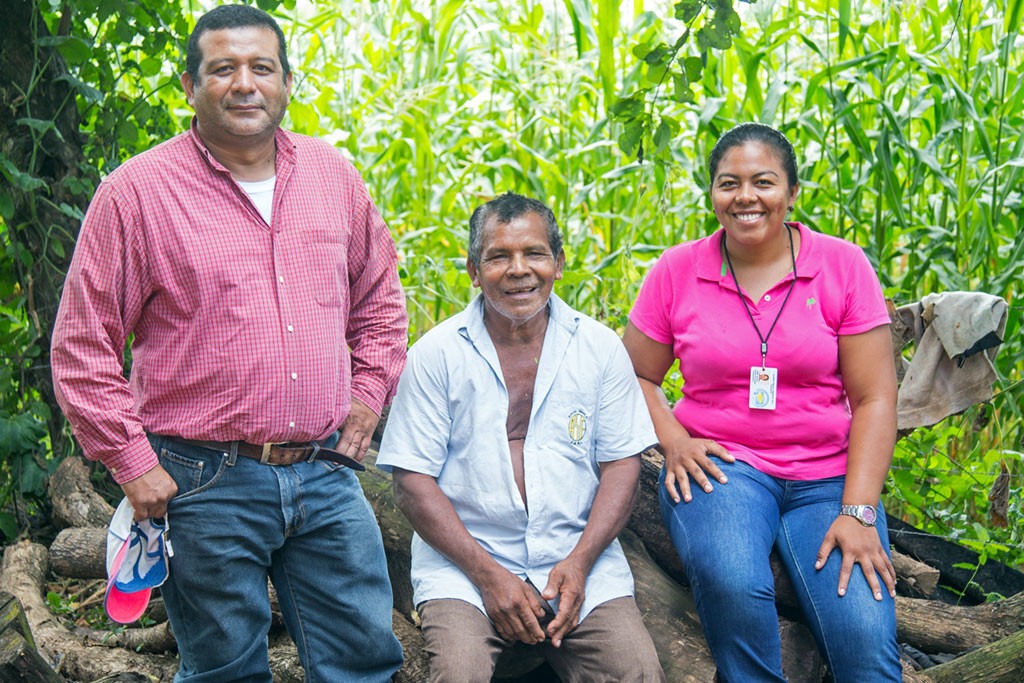
Helping families plan for better futures
In addition to installing the water harvesting system, the project is giving Escobar other tools to help him improve his yield. He received assistance planting his corn more efficiently this year, is experimenting with different types of corn seeds, and will continue learning new practices to be more productive.
ACS-PROSASUR is focused on “smart” agriculture – practices that take the weather instability into account and allow a family to be resilient in the face of dramatic changes in climate they will see throughout the year.
Poor and extreme poor families that meet certain criteria and have access to some land will be supported by the project in implementing agricultural business plans to increase productivity and raise their incomes by up to 30 pour cent. For those without land for planting, non-agricultural business plans will identify other ways for families to generate income and connect to the value chains in their communities.
For many families, low incomes contribute to food insecurity and poor household living conditions, which can have long-lasting repercussions on health, particularly for children.
Escobar’s wife, Juana, stands over her wood stove, flipping thin corn tortillas on a metal pan she’s placed over the flame. À travers le projet, Mercado says she’s learning some new recipes, like for tamales made with green corn.
The cooking tips are one small way ACS-PROSASUR is helping families like hers improve their food security.
And soon she will have more ingredients to work with as the project helps the family plant a small garden of new vegetables and basic grains. For the couple – and the flock of grandchildren sitting in the kitchen, some scrambling to finish homework before heading off to school – the garden will help diversify diets and improve nutrition.
“I hope for some help, that they’ll be able to plant corn, haricots, all kinds of vegetables that you can plant in the summer," dit-elle. “They’re going to plant squash, carrots, onions, lettuce, string beans and cucumbers.”
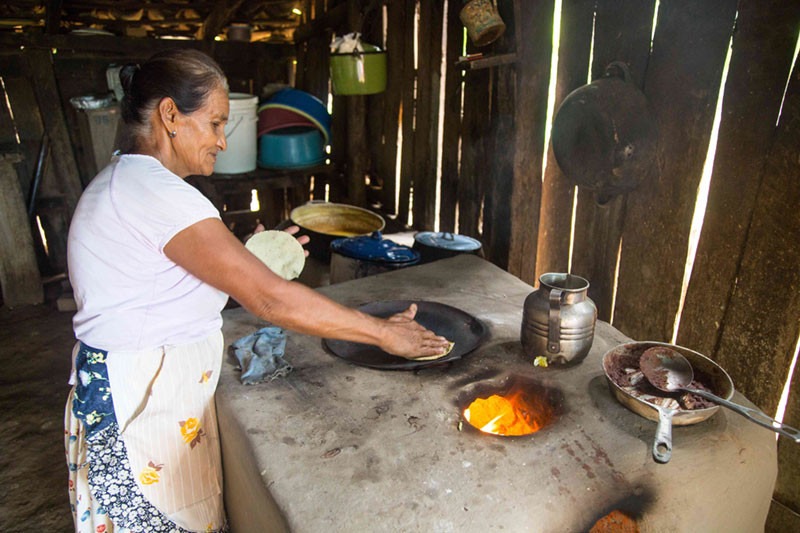
Changing mindsets, sharing knowledge
But building trust and changing long-standing traditional practices is a challenge, particularly in isolated communities like Siete de Mayo. The project depends on a network of staff and volunteers to keep up with hard-to-reach families, braving steep, rocky roads and navigating around herds of cows and flatbed trucks laden with agricultural workers on their crowded commute.
Rimen Martinez, environmental specialist for the project, says generating sustainable change at the community level requires a continuous process of training and knowledge exchange among neighbors.
“If a home adopts the technology, it will be easy to replicate that type of technology at the community or municipal level," dit-il. “So it’s a process that requires a lot of knowledge-sharing, a lot of training, because you have to influence people’s culture, the culture of the home.”
Working with Escobar early on in the project’s five-year lifespan is part of that plan to spread knowledge across the region.
Edgardo Varela, who leads the project’s agriculture component, says Escobar’s reputation and influence as a community leader – and his friendly and talkative nature – make him well-suited to pass on what he’s learning from the project to his neighbors.
“When we give him a technology, he can teach others how to use that technology without the help of a technician,” Varela says. “With the leadership that he already has, the technology we’re going to pass on won’t be transferred through technicians, but though a producer. And people understand much better farmer-to-farmer than if a technician teaches them.”
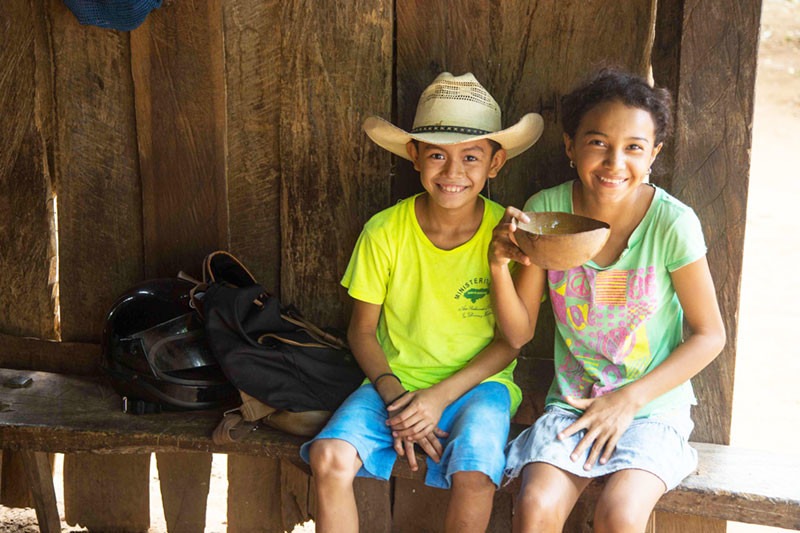
Raising hopes
Though only in the first of five years, the project has stoked excitement among the communities and has begun to see results.
Its continued success, cependant, will hinge on support and full engagement from the communities, explique René León, Project Manager and Senior Associate for Creative’s Workforce Development and Youth Practice Area. And he’s already noticed families’ willingness to not only participate, but to do what they can to ensure that the project’s initiatives take hold.
“I can see the desire of the community to be integrated and to be actors of the project,” León says. “To be active actors and not passive actors sitting and waiting for what the project can do for them, but how they can collaborate and incorporate themselves into the project so that the project can achieve better results and be successful.”
León contends that “it’s expensive to be poor” in the Dry Corridor, because impoverished families lack the up-front resources it takes to increase productivity and improve living conditions. With ACS-PROSASUR interventions, León and his team are working to empower families in poverty and extreme poverty to make positive change happen.
This change is welcomed by Escobar, who has labored over his field largely on his own over the years, plowing fields with oxen, tilling and planting. Aujourd'hui, he has some help from one of his 21 grandchildren and some new techniques from the project.
Escobar says he’s looking forward to seeing the positive effects that having a bit of extra assistance will produce in future harvests.
“God willing the coming year we will have the help that we need. We will no longer have to go around borrowing pickaxes and shovels," dit-il. “That’s what we’re looking for, for some help, because as farmers there are so many things we don’t have.”
With reporting in Honduras by Jillian Slutzker and Amalia San Martín.
